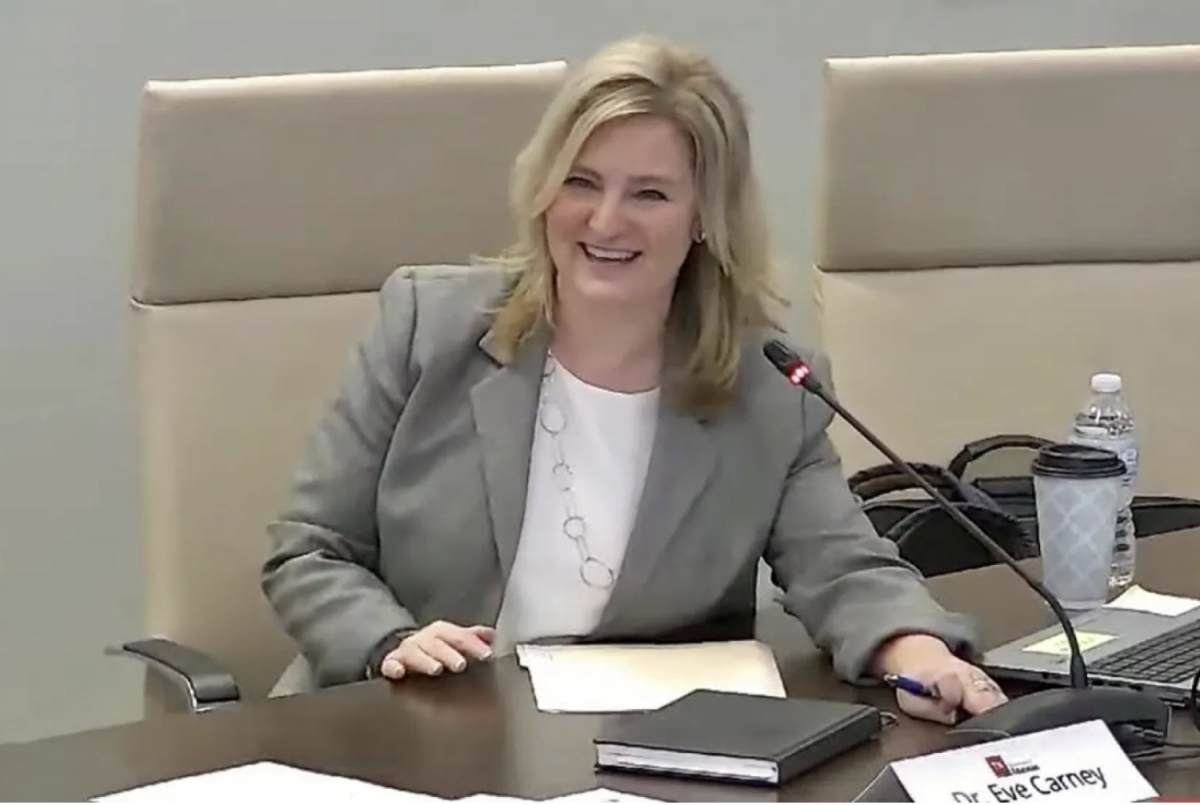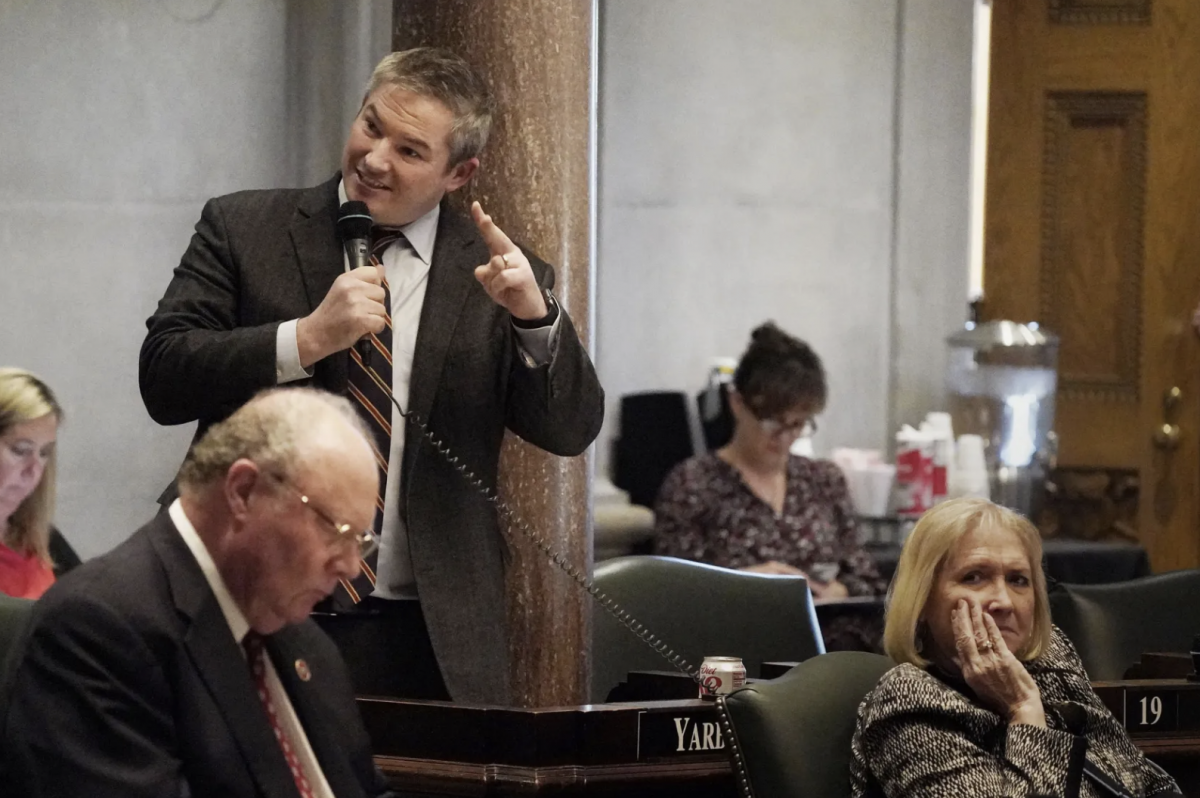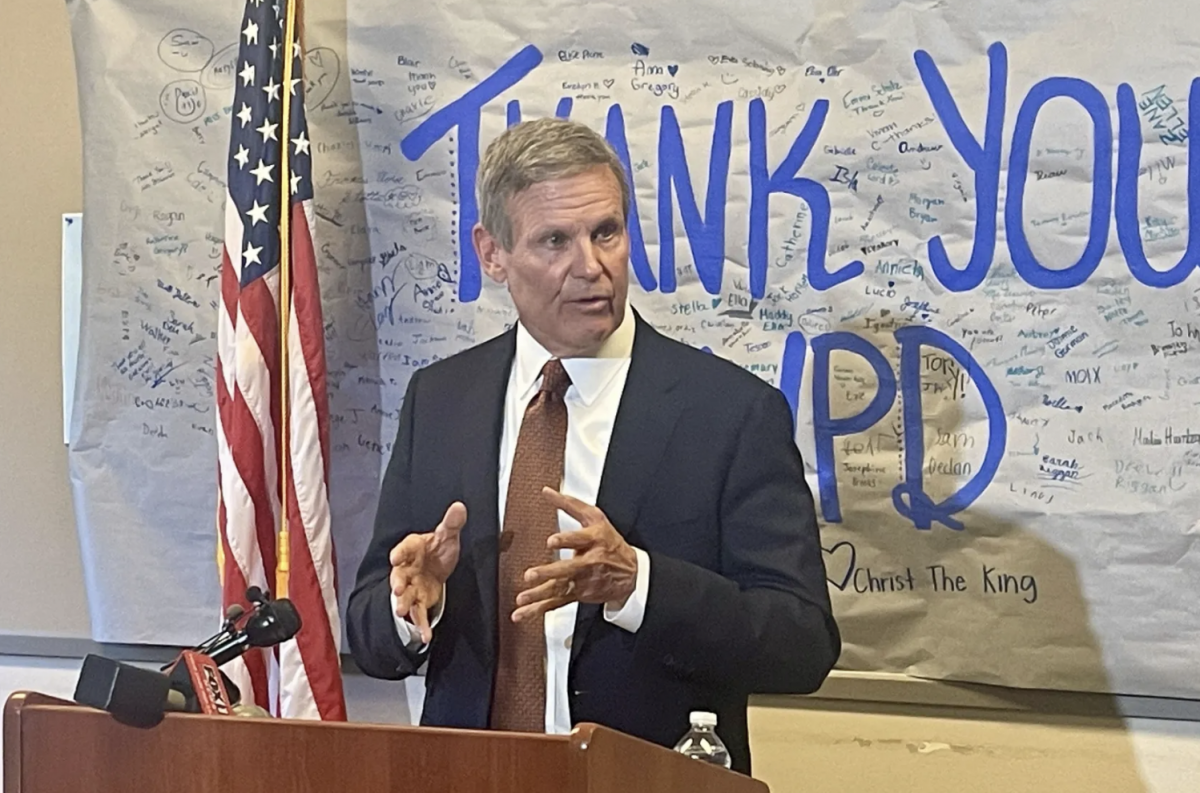Three weeks into her job as Tennessee’s education chief, Lizzette Gonzalez Reynolds says her charge from Gov. Bill Lee is to implement existing major policy changes — from how reading is taught to the continued rollout of private school vouchers — not to craft new initiatives.
She feels prepared for that role, having overseen state-level education policy work in Texas for nearly a decade, including six years as its No. 2 administrator. She also has years of policy and political experience at the federal level, and most recently led policy work for the advocacy group ExcelinEd, founded by former Florida Gov. Jeb Bush.
“Implementation is kind of my sweet spot,” Reynolds said. “When I was chief deputy commissioner in Texas, that’s what I did.”
Among her priorities in Tennessee: executing new programs to develop stronger readers; troubleshooting the switch to a new K-12 funding formula as of July 1; strengthening school models to prepare students for success after high school; and operating and expanding Lee’s controversial voucher program that gives taxpayer money to eligible students to attend private schools.
Meanwhile, much of the work to roll out a comprehensive new school safety package, approved this spring after a mass school shooting in Nashville, has shifted under a new law to the Tennessee Department of Safety and Homeland Security.
Since her official start on July 1, Reynolds’ schedule has been packed with meetings with staff, lawmakers, government officials, and education stakeholders.
Among the latter is JC Bowman, executive director of the Professional Educators of Tennessee, who described Reynolds as “straightforward and direct.”
“She made it clear that she is here to serve students and educators in Tennessee. … I think she will do well here if she will stay above the political fray,” said Bowman, who was a frequent critic of Reynolds’ predecessor, Penny Schwinn.
This week, the new commissioner travels to Memphis, home to the state’s largest school district, for introductions with local officials and community leaders.
Last week, in her first media interview since Lee announced her hiring in May, Reynolds sat down with Chalkbeat to talk about her background, priorities, and leadership style. Since she’s on a learning curve in a new state, questions about policy specifics were off the table.
But she was open about her own K-12 experiences as a public school kid growing up in Harlingen, Texas, a heavily Hispanic community in the Rio Grande Valley near the U.S.-Mexico border.
She described how, as a Hispanic American and a female, she experienced discrimination. As a first-generation college graduate and the oldest of four children of working-class parents, she benefited from scholarships and financial aid. And, as a parent of three children, one of whom was diagnosed with a disability in elementary school, she tapped both public and private schools to find the best fit for her family.
Reynolds said she jumped at the chance to join the administration of Lee, a Republican businessman who pushed for sweeping changes to education in his first term and was easily reelected last year.
“Tennessee has always been the bellwether state of doing things that challenge the adults in the system to continue to do better,” she said. “I want to be part of that story.”
Below are highlights of Chalkbeat’s interview, which has been lightly edited for brevity and clarity.
Getting to know you on a personal level, describe your own education experience. Did you go to public schools? Private schools? How did they shape you?
My only early experience in a private school was attending a Catholic school in pre-K. From kindergarten through 12th grade, I went to public schools in Harlingen.
From an early age, my mom drilled into me that “you got to go to college.” So I was always in a competition to be at the top of my class. I was going to be an astronaut, by God!
I loved math but, when I took trigonometry in high school and it wasn’t connecting, my teacher was like, “You know, you’re a girl. You really don’t need to be doing this. You probably should just drop my class.” So I did.
I was shy and I couldn’t wait to get out of Harlingen. I was blessed with a great school counselor. When I told her I wanted to go to college, she said, “OK, here’s what you need to do.”
I got a merit scholarship to attend Southwestern University, where people in the financial aid office became my best friends and I was able to cover tuition increases through a combination of work-study and Pell grants. By then, I wanted to become an accountant. But after taking a political science class with a truly dynamic professor, I changed my mind. I wanted to save the world.
Your selection was announced by the governor’s office on the same day that Schwinn’s impending departure was announced. How did you come to this job?
A lot of the work I did for the Foundation for Excellence in Education (ExcelinEd) was not only to advocate for its policy agenda but to work across the country with other advocates and supporters and philanthropy. I was on the proverbial “list” of people across the country who might be interested in being a state-level deputy or chief. And I’ve paid my dues. I had thought maybe I might lead the Texas Education Agency someday. But I wasn’t actively looking. I’d been at ExcelinEd almost seven years and loved my job.
This spring, the governor’s office here called and wanted to talk about Tennessee’s chief position and I said, ‘Of course I’ll talk.’ What a great opportunity to meet Gov. Lee, who had a great relationship with Gov. Bush. (During the week of April 11) I came to Nashville and met with (Chief Operating Officer) Brandon Gibson and then interviewed with the governor the next day.
When I walked into his office, everybody was so awesome. Gov. Lee looked at me and said, “Why do you want to be commissioner of education in Tennessee?” I basically said, “Who wouldn’t want to be commissioner here?” Tennessee has always been the bellwether state of doing things that challenge the adults in the system to continue to do better. It’s still strong in accountability and assessment. There’s great work passed in this administration and previous administrations. And then, just the fact that the governor really cares about education, that it’s a priority.
Tennessee is just a good place to be. I want to be part of that story and the continued success of this state with kids. At this agency, we don’t touch kids every day, but we help influence what happens in the classroom because of the supports and resources that we provide.
When I walked out of the governor’s office, I said to myself, ‘I want to work for that man and I’m going to be really disappointed if I don’t get the offer.’
About a week and a half later, I got the offer.
What did you and Gov. Lee talk about in your interview? Why do you think he picked you?
Bottom line, this job was going to be about implementation and execution of the agenda passed through the legislature and through his leadership and (Penny Schwinn’s) leadership at the agency. A lot has already been done. Now the hard work is the implementation piece and that is kind of my sweet spot.
When I was chief deputy commissioner in Texas, that’s what I did: Making sure resources are there, thinking about the right resources, bringing folks in to support those implementation efforts — all the pieces of the puzzle that need to come together to ensure that kids and educators get what they need to be successful.
But sometimes implementation also requires you to say no to some things or to certain vendors.
Because of your policy work with ExcelinEd, with its focus on school choice and privatization, many stakeholders think your selection suggests that voucher expansion and advancing choice programs are Job One for you under this administration. How would you respond?
First of all, it’s not about privatization. Our No. 1 priority at ExcelinEd was to improve the system because we know that about 90 percent of our kids are in a public school system. Second priority is the options outside the system, which includes ESAs (education savings accounts, a kind of private school voucher), charter schools, open enrollment, public school choice, letting parents go where they want to go in the public school system. Third priority is reimagining the system, so really thinking about what other ways we can develop these comprehensive high schools. That’s how we think at ExcelinEd, and that’s why I think I was a good candidate for this job.
Yes, ESAs are part of the package, but it’s not the only package. There is no silver bullet when it comes to education. ESAs are great, but they’re not for everybody. It all depends on the parents and the families and what they want to do and what options they want to pursue.
It wasn’t that long ago that a Tennessee governor wouldn’t think of choosing an education commissioner who didn’t have teaching experience. But you don’t, nor do you have a teaching license. How will you have “street cred” with educators here, given that your background is primarily in policy and politics?
As a parent of public school kids, I’m as close to the classroom as you’re going to get because I’m a consumer of the public school system. To say that my experience is irrelevant, I don’t think it’s very fair. But in that vein, I also want to listen and learn. Earlier today, for instance, I met with folks at the Tennessee Education Association (the state’s largest teacher group).
I’ve got to come at it with empathy and support. Have I done their job every day? No, I haven’t. But we’re all in this together. I’m going to listen. I’m going to engage and implement in a way that is fair and where the decision-making is transparent.
The department has had a number of significant departures in recent months, including Chief Academic Officer Lisa Coons and Deputy Commissioner Eve Carney, who was a veteran manager responsible for many of the state’s biggest education programs and initiatives. How are you building out your cabinet and filling out gaps in leadership? Will you look inside or outside of the state?
I’m looking for the best qualified folks, but my preference is to find people in Tennessee. We just hired Kristy Brown from Jackson as our chief academic officer. We need to fill the role of chief program officer, and I’d love to find a Tennessean for that. I don’t feel the need to look outside of the state because I think there’s a lot of qualified people here. Tennessee is where reform really percolated and expanded and continues to live.
Have you and your family officially moved from Texas to Tennessee, or do you plan to?
I’m here and I’m moving soon into a place in East Nashville. My husband is staying in Austin with our youngest son, who’s a rising junior, until he finishes high school. Our son wants to look at colleges here, so I’m super excited.
I don’t know if I’ll go back to Austin to live. We’ll see.
Marta Aldrich is a senior correspondent and covers the statehouse for Chalkbeat Tennessee. Contact her at maldrich@chalkbeat.org. Chalkbeat is a nonprofit news site covering educational change in public schools.









